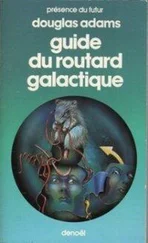Douglas Adams - The Salmon of Doubt
Здесь есть возможность читать онлайн «Douglas Adams - The Salmon of Doubt» весь текст электронной книги совершенно бесплатно (целиком полную версию без сокращений). В некоторых случаях можно слушать аудио, скачать через торрент в формате fb2 и присутствует краткое содержание. Жанр: Фантастика и фэнтези, на английском языке. Описание произведения, (предисловие) а так же отзывы посетителей доступны на портале библиотеки ЛибКат.
- Название:The Salmon of Doubt
- Автор:
- Жанр:
- Год:неизвестен
- ISBN:нет данных
- Рейтинг книги:4 / 5. Голосов: 1
-
Избранное:Добавить в избранное
- Отзывы:
-
Ваша оценка:
- 80
- 1
- 2
- 3
- 4
- 5
The Salmon of Doubt: краткое содержание, описание и аннотация
Предлагаем к чтению аннотацию, описание, краткое содержание или предисловие (зависит от того, что написал сам автор книги «The Salmon of Doubt»). Если вы не нашли необходимую информацию о книге — напишите в комментариях, мы постараемся отыскать её.
The Salmon of Doubt — читать онлайн бесплатно полную книгу (весь текст) целиком
Ниже представлен текст книги, разбитый по страницам. Система сохранения места последней прочитанной страницы, позволяет с удобством читать онлайн бесплатно книгу «The Salmon of Doubt», без необходимости каждый раз заново искать на чём Вы остановились. Поставьте закладку, и сможете в любой момент перейти на страницу, на которой закончили чтение.
Интервал:
Закладка:
Adams writes “slowly and painfully.”
“People assume you sit in a room, looking pensive and writing great thoughts,” he said. “But you mostly sit in a room looking panic-stricken and hoping they haven’t put a guard on the door yet.”
Adams will probably be writing for the next few years, before his daughter grows up.
“I think what I’ll do, because there has been talk about me doing a big TV documentary series, is that I’ll wait until her hormones kick in, and then I shall go off like a shot,” he said. “I think when she’s about thirteen I’ll go off and do a big documentary series and come back when she’s become civilized.” The interview ended when Adams’s cell phone rang from inside his pocket. In the other pocket there was a little bit of padded cotton, red jtrimmed with a giraffe on it. It looked like it belonged to his daughter. His wife and daughter were supposed to have flown to London that night, but his daughter came down with an ear infection. “A serious one, actually.”
It was time for Adams to climb into his black Mercedes to go home and see her.
And so he did.
Interview conducted by Brendan Buhler, Artsweek
Epilogue
A LAMENT FOR Douglas Adams, best known as author of The Hitchhiker’s Guide to the Galaxy, who died on Saturday, aged forty-nine, from a heart attack. This is not an obituary; there’ll be time enough for them. It is not a tribute, not a considered assessment of a brilliant life, not a eulogy. It is a keening lament, written too soon to be balanced, too soon to be carefully thought through. Douglas, you cannot be dead.
A sunny Friday morning in May, ten past seven, shuffle out of bed, log in to e-mail as usual. The usual blue bold headings drop into place, mostly junk, some expected, and my gaze absently follows them down the page. The name Douglas Adams catches my eye and I smile. That one, at least, will be good for a laugh. Then I do the classic double-take, back up the screen.
What did that heading actually say? Douglas Adams died of a heart attack a few hours ago. Then that other cliche, the words swelling before my eyes. It must be part of the joke. It must be some other Douglas Adams. This is too ridiculous to be true. I must still be asleep. I open the message, from a well-known German software designer. It is no joke, I am fully awake. And it is the right—or rather the wrong— Douglas Adams. A sudden heart attack, in the gym in Santa Barbara. “Man, man, man, man oh man,” the message concludes. Man indeed, what a man. A giant of a man, surely nearer seven foot than six, broad-shouldered, and he did not stoop like some very tall men who feel uncomfortable with their height. But nor did he swagger with the macho assertiveness that can be intimidating in a big man. He neither apologised for his height, nor flaunted it. It was part of the joke against himself. One of the great wits of our age, his sophisticated humour was founded in a deep, amalgamated knowledge of literature and science, two of my great loves. And he introduced me to my wife—at his fortieth birthday party. He was exactly her age, they had worked together on Dr. Who. Should I tell her now, or let her sleep a bit longer before shattering her day? He initiated our togetherness and was a recurrently important part of it.
I must tell her now. Douglas and I met because I sent him an unsolicited fan letter—I think it is the only time I have ever written one. I had adored The Hitchhiker’s Guide to the Galaxy. Then I read Dirk Gently’s Holistic Detective Agency. As soon as I finished it, I turned back to page one and read it straight through again—the only time I have ever done that, and I wrote to tell him so. He replied that he was a fan of my books, and he invited me to his house in London. I have seldom met a more congenial spirit. Obviously I knew he would be funny. What I didn’t know was how deeply read he was in science. I should have guessed, for you can’t understand many of the jokes in Hitchhiker if you don’t know a lot of advanced science. And in modern electronic technology he was a real expert. We talked science a lot, in private, and even in public at literary festivals and on the wireless or television. And he became my guru on all technical problems. Rather than struggle with some ill-written and incomprehensible manual in Pacific Rim English, I would fire off an e-mail to Douglas. He would reply, often within minutes, whether in London or Santa Barbara, or some hotel room anywhere in the world.
Unlike most staff of professional helplines, Douglas understood exactly my problem, knew exactly why it was troubling me, and always had the solution ready, lucidly and amusingly explained. Our frequent e-mail exchanges brimmed with literary and scientific jokes and affectionately sardonic little asides. His technophilia shone through, but so did his rich sense of the absurd. The whole world was one big Monty Python sketch, and the follies of humanity were as comic in the world’s silicon valleys as anywhere else.
He laughed at himself with equal good humour. At, for example, his epic bouts of writer’s block (“I love deadlines. I love the whooshing noise they make as they go by”) when, according to legend, his publisher and book agent would lock him in a hotel room, with no telephone and nothing to do but write, releasing him only for supervised walks. If his enthusiasm ran away with him and he advanced a biological theory too eccentric for my professional scepticism to let pass, his mien at my dismissal of it would always be more humorously self-mocking than genuinely crestfallen. And he would have another go.
Science has lost a friend, literature has lost a luminary, the mountain gorilla and the black rhino have lost a gallant defender (he once climbed Kilimanjaro in a rhino suit to raise money to fight the cretinous trade in rhino horn), Apple Computers has lost its most eloquent apologist. And I have lost an irreplaceable intellectual companion and one of the kindest and funniest men I ever met. The day Douglas died, I officially received a happy piece of news, which would have delighted him. I wasn’t allowed to tell anyone during the weeks I have secretly known about it, and now that I am allowed to, it is too late. The sun is shining, life must go on, seize the day and all those cliches. We shall plant a tree this very day: a Douglas fir, tall, upright, evergreen. It is the wrong time of year, but we’ll give it our best shot. Off to the arboretum.
MAY 14, 2001
(Richard Dawkins is Charles Simonyi Professor of the Public Understanding of Science at Oxford University.)
Douglas Noel Adams 1952-2001
The Order of Service for His Memorial Schubler Chorales—J. S. Bach Shepherd’s Farewell, from The Childhood of Christ Hector Berlioz Welcome to the Church by Reverend Antony Hurst, on behalf of St. Martin-in-the-Fields Introduction and opening prayer by Stephen Coles JONNY BROCK
Three Kings from Persian Lands—Peter Cornelius ED VICTOR
Mine eyes have seen the glory of the coming of the Lord—
Traditional American melody & words by Julia Ward Howe MARK CARWARDINE
Gone Dancing—Robbie Mclntosh Te Fovemus—The Chameleon Arts Chorus (by P. Wickens)
JAMES THRIFT, SUE ADAMS, JANE GARNIER
Rockstar—Margo Buchanan Prayers of Thanksgiving by Stephen Coles Holding On—Gary Brooker Wish You Were Here—David Gilmour RICHARD DAWKINS
For the beauty of the earth—Music by Conrad Kocher & words by Folliott S. Pierpoint ROBBIE STAMP
Vergnugte Ruh, beliebte Seelenlust from Cantata No 170
Gone Dancing—Robbie Mclntosh Te Fovemus—The Chameleon Arts Chorus (by P. Wickens)
JAMES THRIFT, SUE ADAMS, JANE GARNIER
Rockstar—Margo Buchanan Prayers of Thanksgiving by Stephen Coles Holding On—Gary Brooker Wish You Were Here—David Gilmour RICHARD DAWKINS
Читать дальшеИнтервал:
Закладка:
Похожие книги на «The Salmon of Doubt»
Представляем Вашему вниманию похожие книги на «The Salmon of Doubt» списком для выбора. Мы отобрали схожую по названию и смыслу литературу в надежде предоставить читателям больше вариантов отыскать новые, интересные, ещё непрочитанные произведения.
Обсуждение, отзывы о книге «The Salmon of Doubt» и просто собственные мнения читателей. Оставьте ваши комментарии, напишите, что Вы думаете о произведении, его смысле или главных героях. Укажите что конкретно понравилось, а что нет, и почему Вы так считаете.







